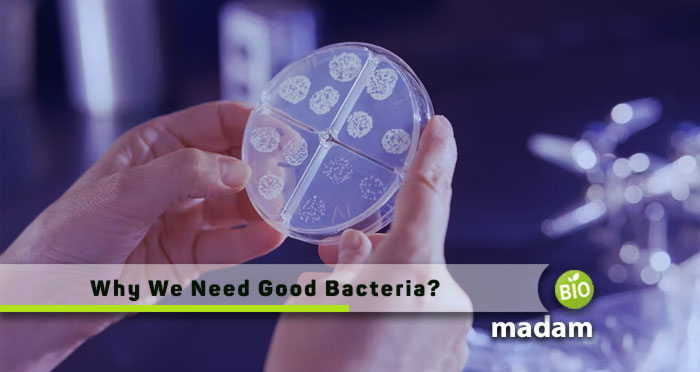Most people don’t know much about bacteria in general. That’s okay because that’s not a usual topic you discuss with friends or coworkers during lunch. However, being informed about these microorganisms is quite useful. A lot of people think of infection first when they hear the word bacteria but it’s not always so.
There are good bacteria as well and they are quite helpful to us. But even good bacteria can be bad if their number grows too much. That’s why many foods that we consume are tested using a bacteria measuring device to determine the optimal levels.
The fact of the matter is that there are approximately 100 trillion bacteria living inside us all the time. The most common ones are what we call the “gut flora” and they make sure we digest food properly. Therefore, let’s have a look at good bacteria and why we need them, in the first place.
What Exactly are Good Bacteria?
Good bacteria help us not just digest food more efficiently but also produce some of the nutrients necessary for our survival, such as niacin, folic acid, vitamin B6, and B12. They also help strengthen our immune system against our bad relatives.
By being present in the gut where they multiply and do their thing, our immune system keeps an eye on them learning how to defend against these types of pathogens and antigens. Should bad relatives invade our bodies, our immune cells already have the information they need to combat these invaders.
The gut bacteria are commonly known as probiotics that some people use as supplements. If you’re worried that our good friends are feasting on us, don’t worry. Gut bacteria actually feast on fibers we ingest by consuming fruits and vegetables. We give them fibers and they give us the good stuff in return.
Can Good Bacteria Turn Bad?
Of course, they can. However, good bacteria going rogue in our bodies is usually quite rare. Bad things happen when good bacteria multiply too much and decide to migrate where they don’t belong. A good example of this is bacteria called Helicobacter pylori.
This bacteria lives in our stomach and upper gut where it helps us digest food. However, when this bacteria multiplies too much it floods the upper gut causing symptoms like abdominal pain, acute gastroenteritis and if not treated, peptic ulcers. Once treated with antibiotics, H. Pylori goes back to optimal levels where it continues to benefit digestion.
Sounds creepy, but it is what it is. The thing is that this bacteria runs from an environment that’s too acidic. Too much acid in your stomach and the bacteria flees where it shouldn’t go causing it to multiply and make trouble.

But Why do we Need Good Bacteria?
Aside from the benefits mentioned above, good bacteria in our bodies actually keep us alive per se. You see, it’s all about the balance. Our immune system can be harmful to us. White blood cells police our system and keep bacteria levels in check.
At the same time, good bacteria prevent our immune system from using too much force. Basically, they negate each other out but in a good way. In other words, good bacteria tell our immune system what the actual bad guys look like. This prevents our immune system from growing too strong.
Sounds silly but it’s true. An immune system that’s too powerful will attack everything, including good cells and organs as it can’t determine who the preterdator is and who isn’t. This can potentially kill us so we have good bacteria to thank for preventing our own immune system from killing us.
Can we help Good Bacteria?
Indeed we can. By eating fruit, vegetables, and dairy products we actually help our good bacteria. For instance, good bacteria, such as streptococcus thermophilus, lactobacillus thermophilus, and lactobacillus bulgaricus are all probiotic bacteria used to make dairy products, such as yogurt and cheese.
By ingesting these products we actually help our gut flora to grow and prosper but not in a bad way. As mentioned before, fibers from fruit and vegetables are basically food for our good bacteria.
A balanced diet helps our good friends remain good to us. A protein-only diet is actually reducing the number of good bacteria in our bodies because good bacteria cannot process proteins. Therefore, if you want to help your friendly bacteria, make sure you eat a bit of everything from all food groups.
Those who avoid meat, eggs, and dairy for medical or other reasons can take supplements to help their good bacteria grow. Lack of good bacteria may cause autoimmune diseases, which is why it’s important to keep these fellas in good shape.
Closing Words
Bacteria or germs as some people like to call them are not all bad. In most cases, we don’t even know that we’re in constant contact with good bacteria. We only hear about the bad ones when we get sick. That’s why it’s easy for people to associate bacteria with infections and diseases. Who would’ve thought that good bacteria are actually helping us stay alive?

Hi, they call me Jenna, and I am also known for achieving a gold medal during my Ph.D. in science life. I always had a dream to educate people through my utmost writing hobby. So, I chose this blogging path, and Biomadam gave me this opportunity to present for them. I now stand to entertain you. Continue reading my articles & discuss if you’ve any confusion through the comment section below.

